School of Pharmacy Staff Celebrated at 2025 QUB Teaching Awards
Staff from the School of Pharmacy have been recognised with multiple awards at the 2025 Queen's University Belfast Teaching Awards, demonstrating the School's commitment to excellence in education and innovation in teaching practice.
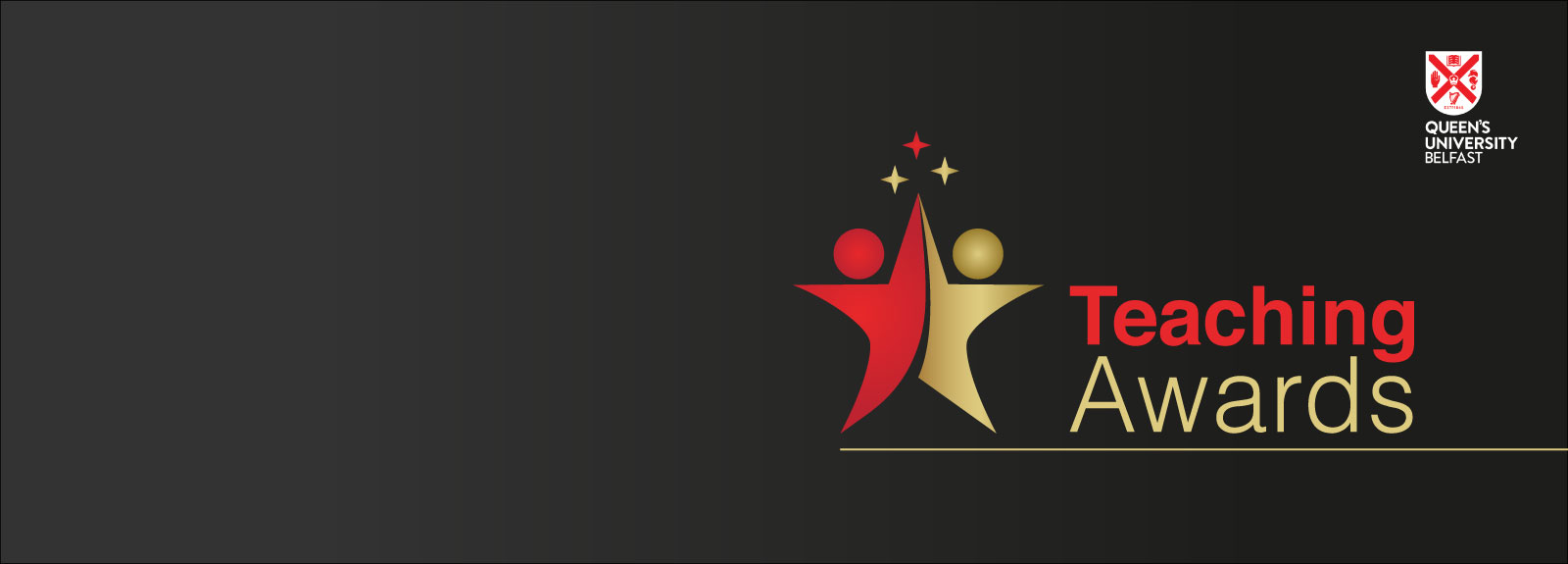
The School achieved success across both Individual and Team categories, with staff recognised for innovations spanning pharmaceutical calculations teaching, professional identity development, experiential laboratory learning, simulation-based learning, and the application of generative artificial intelligence in education. The awards reflect the collaborative spirit and student-centred approach that defines teaching excellence within the School.
Individual Award Winners
Dr Chris Spence was recognised for developing and implementing a student-centred, evidence-based strategy for teaching pharmaceutical calculations within the MPharm programme. The strategy ensures compliance with regulatory standards while enhancing student engagement through early foundational teaching, blended learning, diagnostic assessments, and integration of technologies such as pencasting. The judging panel highlighted the highly compelling application demonstrating clear reach, value, and impact, with strong evidence of improved student outcomes. Dr Spence commented:
"I'm very grateful to receive this award. While it is individual recognition, the work has been deeply collaborative and shaped by student input to transform pharmaceutical calculations teaching at QUB. I'm thankful to colleagues in the School of Pharmacy, those involved across wider pharmacy practice sectors, and especially to the students whose feedback and views helped inform this work."
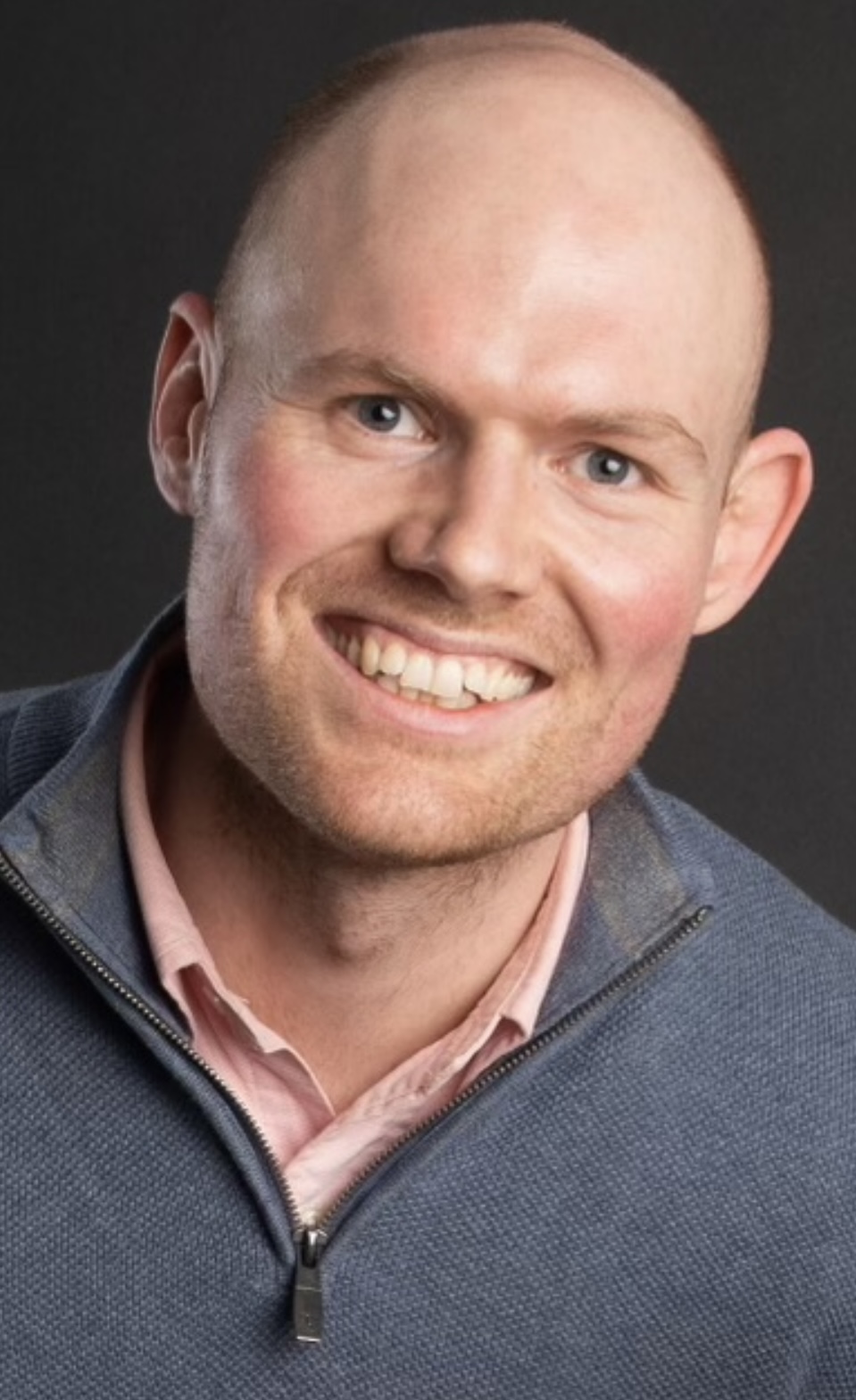
Dr Chris Spence was awarded with an individual teaching award for his work in developing MPharm students' competency in undertaking clinical calculations.
Dr Fiona Hughes was recognised for leading major innovations in the MPharm programme to embed extended and enhanced experiential learning using Entrustable Professional Activities (EPAs) as core to developing prescribing competence and professional identity. Her work has transformed the student experience by empowering students to contribute meaningfully in practice, training supervisors to support them, and strengthening partnerships across education, practice, and policy. The panel highlighted her leadership in embedding professional development across the pharmacy programme, with strong evidence of student impact and advancement of Strategy 2030 priorities. Dr Hughes said:
"I'm honoured to receive this award, which reflects not just my work but the dedication of our students, colleagues, and practice partners. Embedding professional identity and experiential learning into the MPharm has been about empowering students to see themselves as future pharmacists from the very beginning."
| Fiona Hughes | The Launch of Pharmacy EPAs |
|---|---|
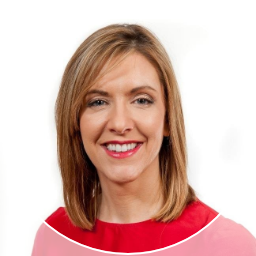 |
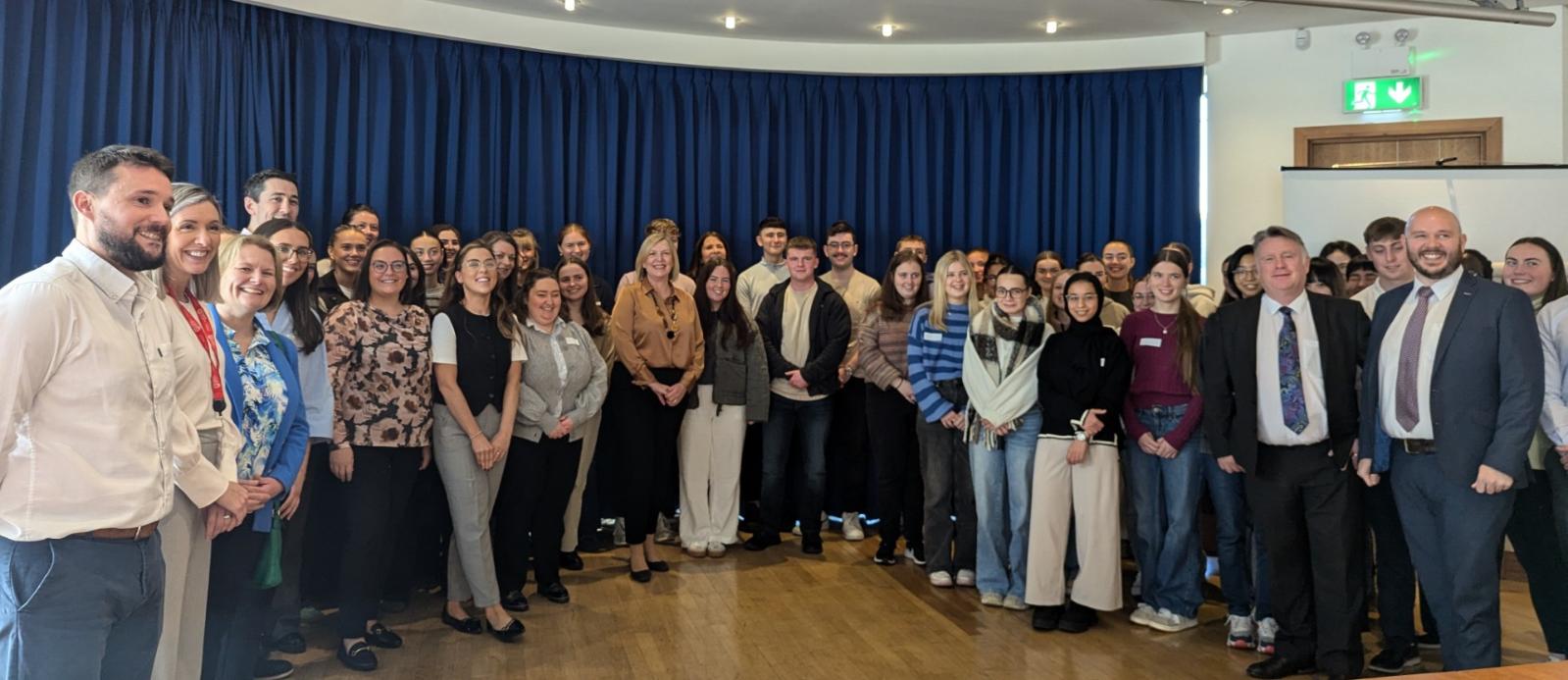 |
Dr Hughes received her individual award for the work undertaken in relation to the development of entrustable professional activities within experiential learning activities within the School's MPharm programme.
Clare Murray was recognised for integrating prescribing skills and attributes into the MPharm degree programme, drawing on real-world industry experience. Her teaching prepares students for their future roles as independent pharmacist prescribers through authentic, practice-based learning in secure, simulated environments, ensuring they are confident and capable of providing safe and effective care. The judging panel highlighted her exemplary innovation and collaboration, with student-centred teaching that transforms professional identity formation and prescribing education. They noted her authentic, practice-based learning approaches that align directly with workforce needs and regulatory expectations, strengthening graduate employability and professional readiness, as well as her educational leadership that has demonstrably enhanced student attainment, experience, and preparedness for practice.
Commenting on her award, Clare stated:
"I am deeply honoured to receive this award; the work that it recognises could not have been achieved without the support of colleagues, the broader profession and, most importantly, the exceptionally talented students we have here at Queen's University Belfast. I have been inspired by our students' commitment to become future pharmacist independent prescribers, which has driven the development of teaching that enables them to develop and practise these vital skills in a safe and supportive environment. It is a privilege to be part of a team which is shaping the future of pharmacy education."
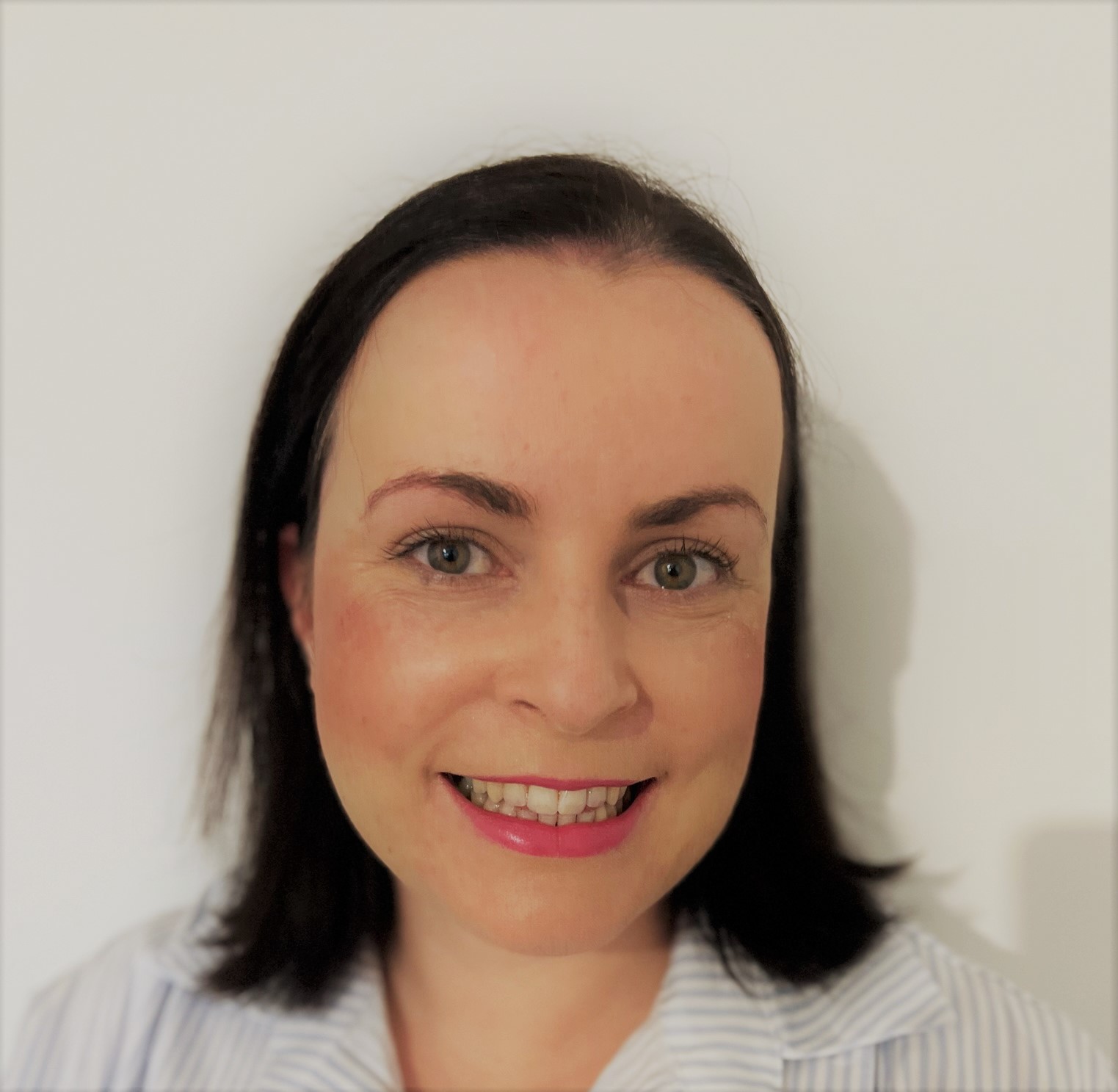
Clare Murray's work in integrating prescribing skills into the MPharm programme at Queen's was recognised in the 2025 QUB Teaching awards.
Team Awards
The Pharma Lab & Biotechniques Teaching Team (led by Professor Lorraine Martin, and consisting of Dr Chris Grigsby, Dr Fiona Furlong, Dr James Reihill, Dr Lei Wang, Paula Coulter, Charu Khanna, Dr Dan Corbett, Dr Peter Boyd, Dr Jordan Wilson, Professor Karl Malcolm, Dr Louise Carson, Dr Matthew Wylie, Dr Sheiliza Carmali, Professor Maurice Hall, Gavin Graham, Luc Belaid, Keith Hickland, Jordanne-Amee Maybin, Deepak Jayapalan, Lee-Anne Howell, Mark McCalmont), driven by industry consultation and student voice, worked to introduce innovative Level 2 modules (PMY2306/2308) into the School's BSc programmes in Pharmaceutical Sciences and Pharmaceutical Biotechnology, delivering experiential, skills-based learning that mirrors professional practice. Co-designed with employers, these modules integrate authentic assessment including an observed structured practical examination (OSPE). Students reported increased belonging, enhanced confidence in key lab skills, improved readiness for placement, and strengthened confidence around employability. The judging panel were particularly impressed by the innovative design and highly engaging structure with active participation ensuring strong student involvement. Professor Martin commented:
"We're thrilled to be recognised as a joint teaching team for our creativity, innovation, and impact. The modules enabled staff to deliver hands-on, one-to-one training, helping students build confidence, develop core competencies, and become industry-ready."
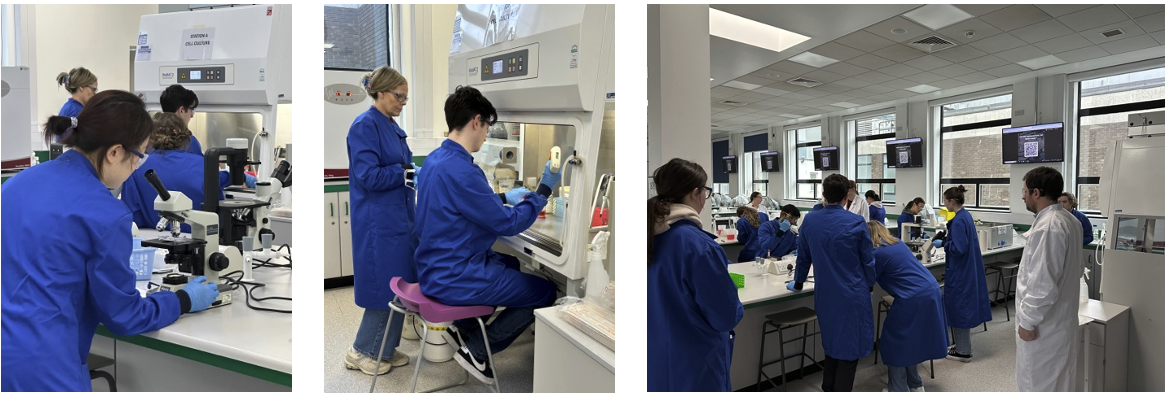
The Pharma Lab & Biotechniques Teaching Team developed authentic, industry-focused modules which prepared students for entry into work placements and careers in the pharma sector.
The QAIRx: Intelligent Pharmacy Consultations Team (led by Dr Dan Corbett, and consisting of Dr Matthew Collins (School of Electronics, Electrical Engineering, and Computer Science), Professor Maurice Hall, and Professor Lezley-Anne Hanna) was recognised for developing QAIRx, a generative artificial intelligence-driven virtual reality platform that provides realistic interactive pharmacy practice scenarios. The platform allows students to engage with virtual patients in authentic clinical consultations, helping them develop communication skills, consultation techniques, and clinical decision-making in a safe, simulated environment. Students can practise patient interactions remotely, receive automated feedback on their performance, and build confidence before engaging in real-world practice. The judging panel were particularly impressed by the innovative use of technology and the collaborative partnership with students in co-developing the resource, ensuring it was engaging, practical, and directly shaped by learner needs. The strong team-based approach fostered excellent engagement, created new opportunities for learning, and serves as a model for future digital education initiatives across the University.
Learning of the award, Dr Corbett commented:
"We're delighted that QAIRx has been recognised in this way. This project exemplifies what can be achieved when you bring together expertise from different disciplines and work closely with students to understand what they need. Patient consultations can be nerve-wracking for students, and our aim was to create a realistic, accessible platform that allows them to practise in a safe environment at their own pace. The feedback from students has been incredibly positive - they've told us it helps reduce their anxiety and better prepares them for real-world interactions. This kind of innovation is only possible through genuine interdisciplinary collaboration, and I'm grateful to Matthew, Maurice, and Lezley-Anne for their commitment to pushing the boundaries of what's possible in pharmacy education."
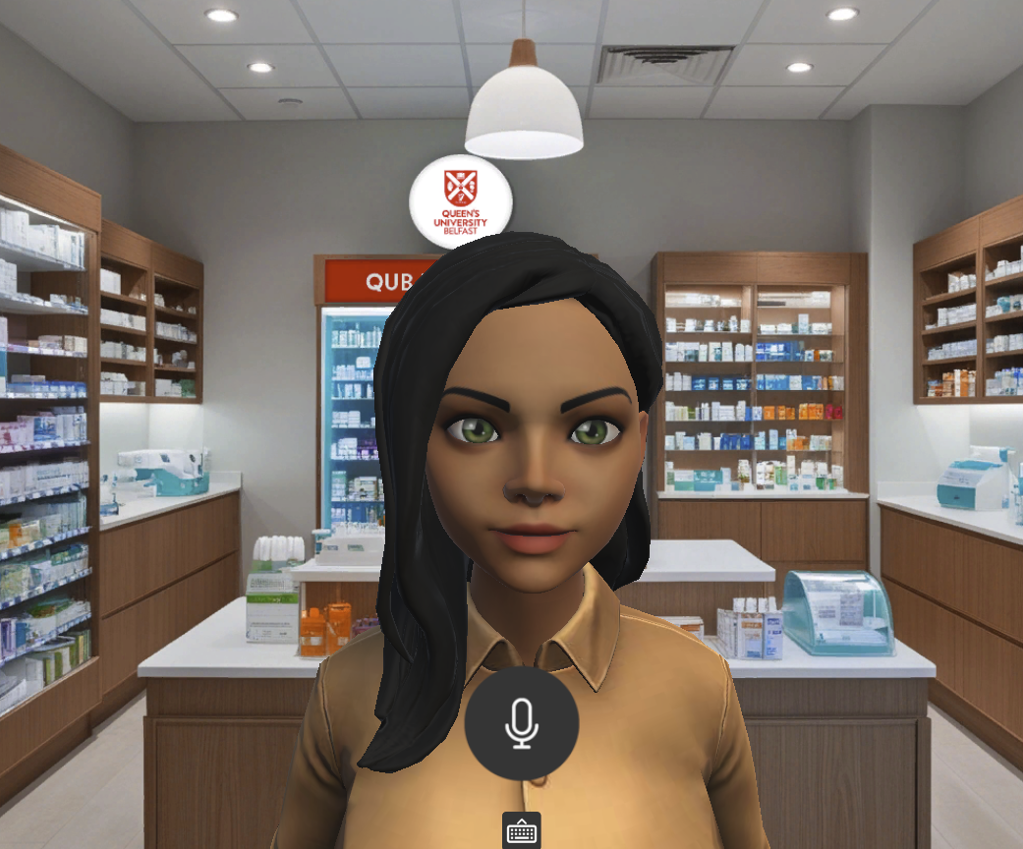
The QAIRx Team created a generative artificial intelligence-driven patient interaction platform, which seeks to improve the clinical skills of pharmacy students.
The 'Lived Experience' Interprofessional Simulation Team (led by Professor Sharon Haughey (School of Pharmacy), Dr Vicky Adams, Dr Hannelie Edgar, Mrs Siobhán Boyce (School of Pharmacy), Dr Nichola Booth, Dr Dan Corbett (School of Pharmacy), Karen Mulvihill, Adeola Akintonde, Jordana Bunting, Kara Lapchinsky, and David Hardy) were recognised for their work with immersive simulation. These sessions gave students from pharmacy, dentistry and occupational therapy a 'lived experience' as aging and neurodiverse individuals navigating the healthcare system, fostering interprofessional working and challenging perceptions. The judging panel were particularly impressed by the collaborative design involving students, expert patients, academics, and practitioners, commending how the approach integrates digital technology, ethical practice, and patient voice into teaching.
Professor Haughey reflected:
"As the first Intersim Fellows for pharmacy and dentistry, Siobhán and Hannelie have worked exceptionally hard as part of a fantastic team to co-design and deliver impactful, immersive simulation. I am delighted to see this interprofessional work recognised."
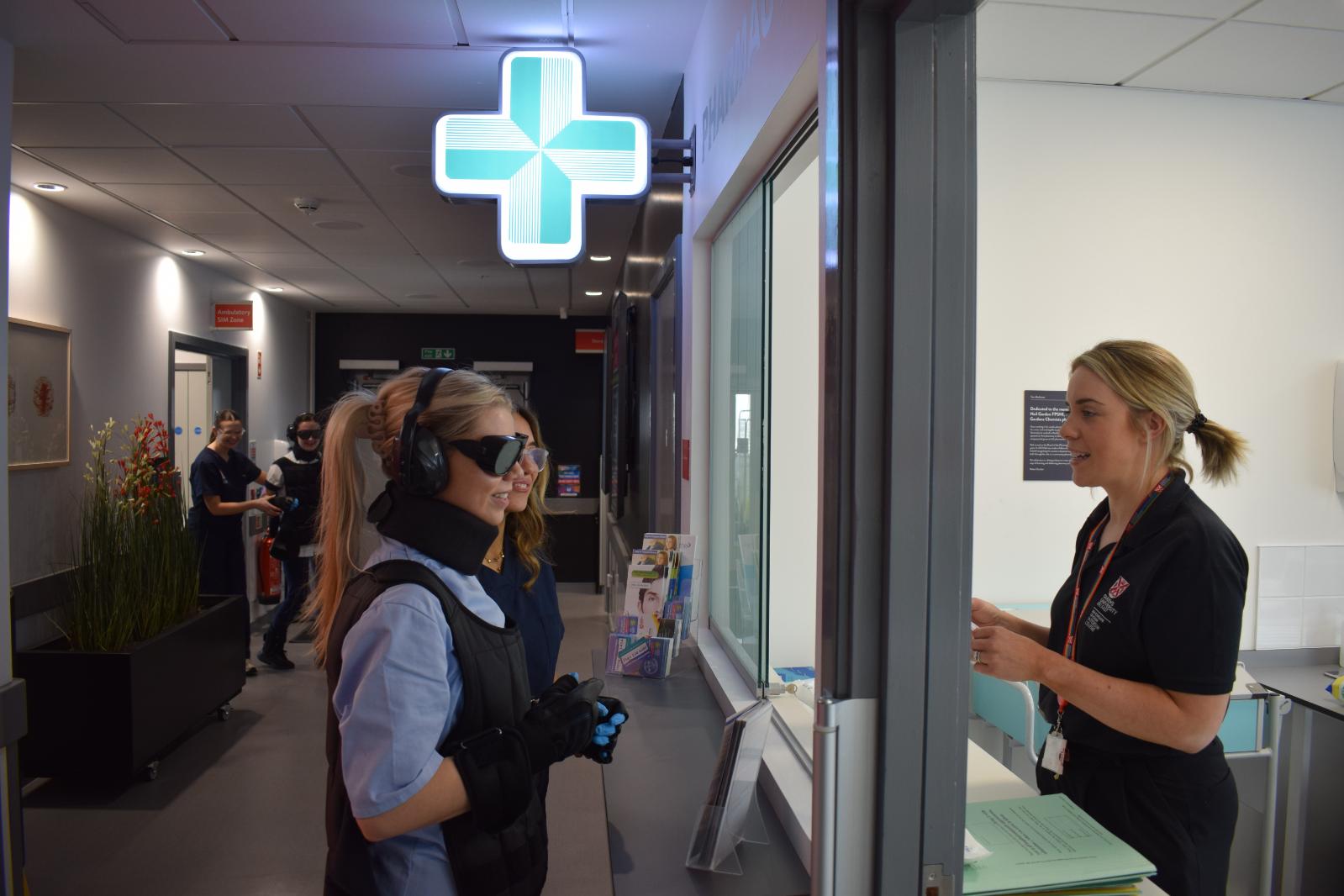 |
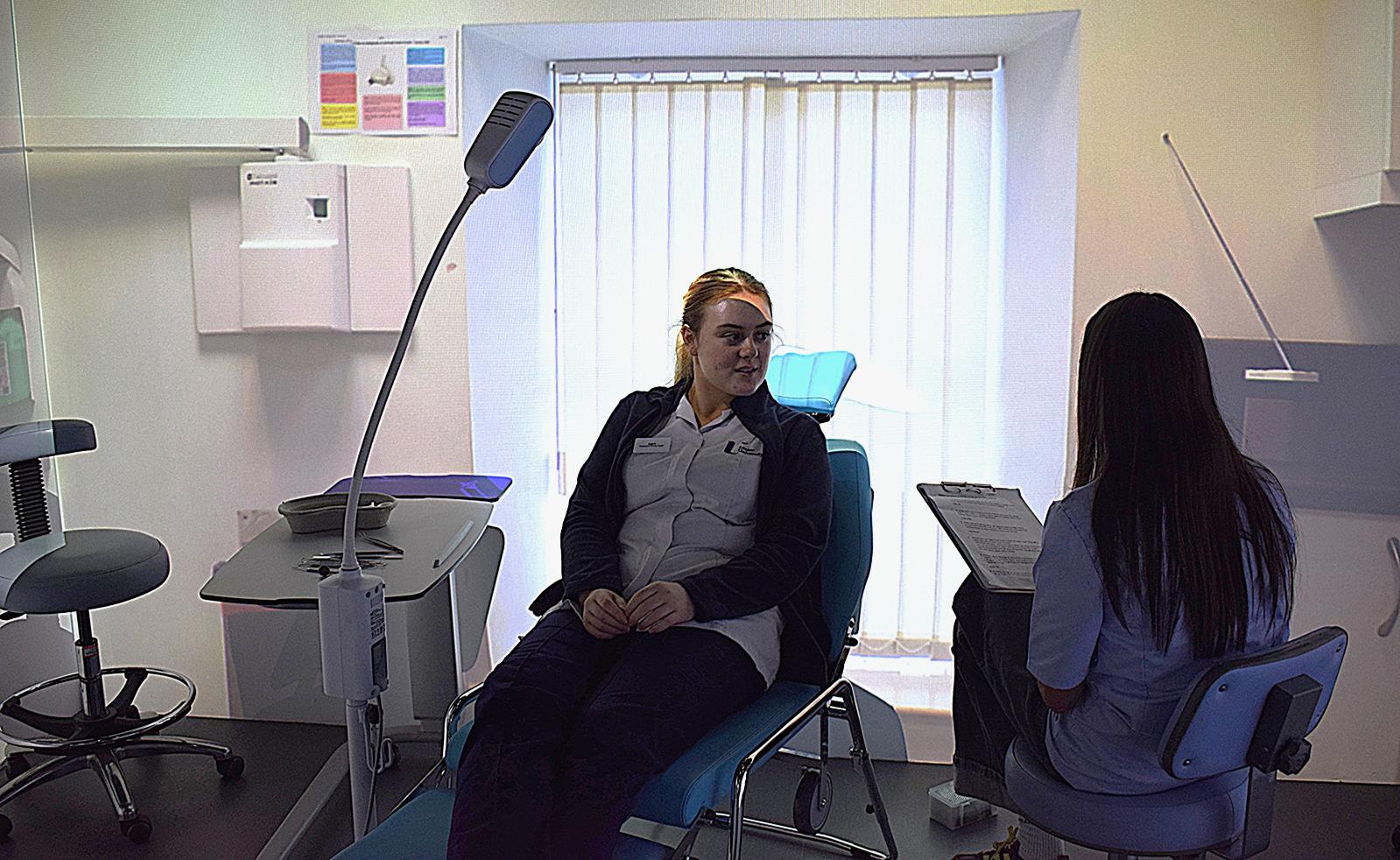 |
|---|---|
| Lived Experience Activities | The School of Pharmacy |
The "Lived Experience" Interprofessional Simulation Team created authentic scenarios intended to understand the experiences of their patients.
Speaking of the awards, Dr Paul McCague, the School's MPharm Director of Education, commented:
"I am delighted to see our colleagues recognised with these prestigious teaching awards. Their innovative work in areas such as high-fidelity simulation, artificial intelligence, experiential learning, safe prescribing, and calculations is transforming the student experience, inspiring excellence, and preparing the next generation of pharmacists with the knowledge, skills, and confidence to excel in clinical practice."
Professor David Jones, Director of Education for the School's BSc programmes in Pharmaceutical Sciences and Pharmaceutical Biotechnology, and its MSc programme in Industrial Pharmaceutics, added:
"The innovative teaching being designed within our BSc programmes, including that by our award-winning teams, will enable students to achieve a skill set that will make them more attractive to the pharmaceutical industry as graduates, and will assist in their development path within the industry."
Professor Gavin Andrews, Head of the School of Pharmacy at Queen's, remarked of the School's achievements:
"I am immensely proud of our staff who have been recognised at this year's QUB Teaching Awards. These achievements reflect our unwavering commitment to educational excellence and innovation. From transforming pharmaceutical calculations teaching to pioneering interprofessional simulation and delivering industry-connected experiential learning, our academics are shaping the future of pharmacy education. Our students are at the heart of everything we do, and these awards affirm that we are equipping them with the knowledge, skills, and professional identity needed to excel in their future careers."
The Queen's University Belfast Teaching Awards recognise learning, teaching and support practices that enhance student experiences. These achievements exemplify the School of Pharmacy's contribution to advancing Queen's Strategy 2030 priorities, including embedding educational innovation, enhancing employability, and driving excellence in teaching.
More information about the awards, and other prizewinners is available via the awards' website.
Media
For media enquiries, please contact Grace White at Queen’s Communications Office via email.
